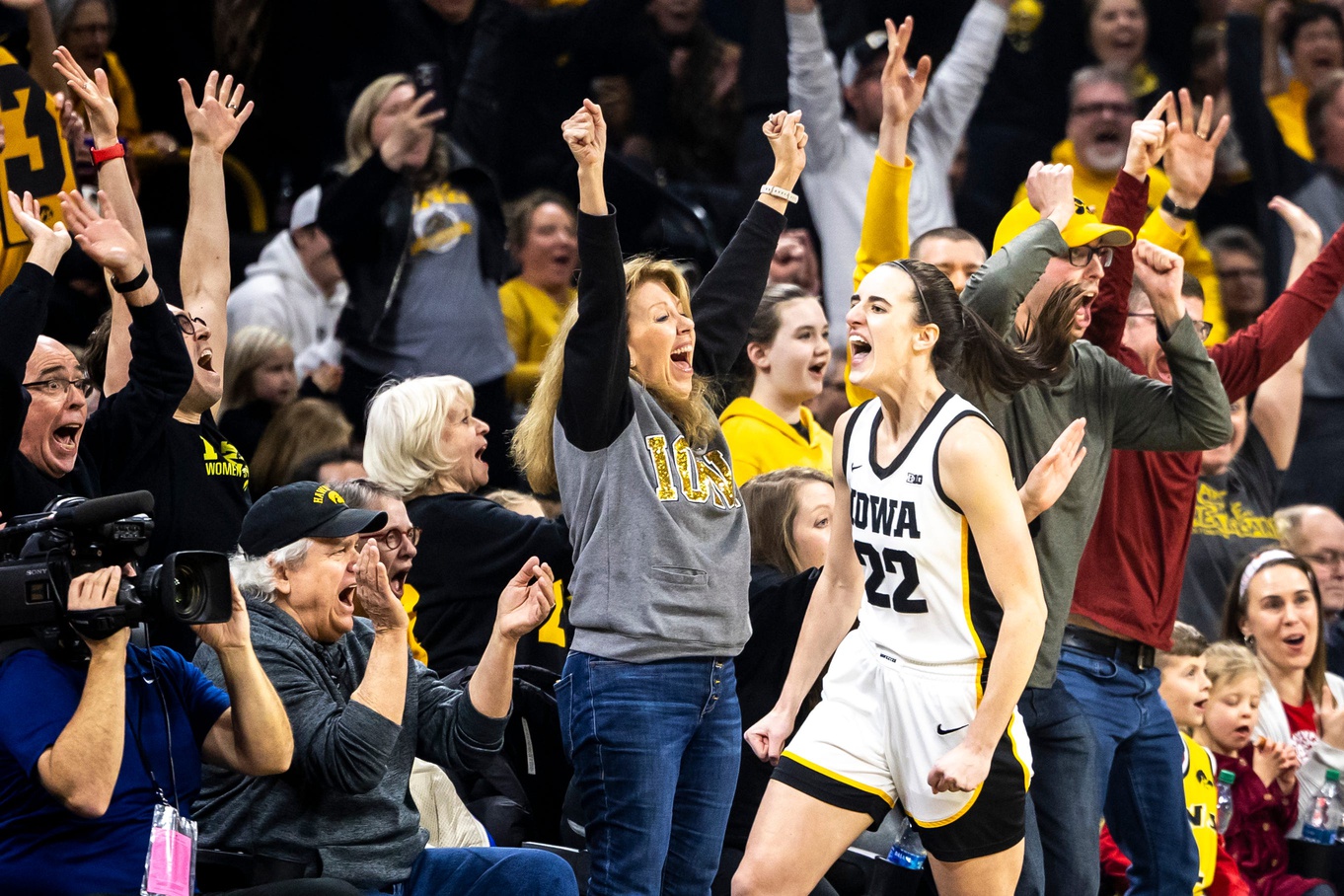On Thursday night, Iowa’s Caitlin Clark broke the NCAA women’s basketball scoring record where fans wanted: at home in Carver-Hawkeye Arena. But on TV, the historic moment for Clark, the Hawkeyes, and women’s college basketball was in the wrong place.
The Michigan-Iowa matchup was aired exclusively on Peacock, NBCUniversal’s streaming platform. The network provided top-level coverage of Clark, from a prime-time broadcast to a “Caitlin Clark cam” altcast—but it was all behind a paywall.
For years, major broadcasters have eschewed women’s sports, including women’s college basketball, claiming that the product wasn’t profitable. But the second a network—in this case, NBC—realized the women’s game was lucrative, it opted to maximize shareholder value (by boosting its streaming platform) over providing nationwide visibility to a once-in-a-lifetime moment for the sport.
If NBC had moved the game to its main network, it would have been available in front of hundreds of millions of homes. Instead, just 30 million Peacock subscribers had access.
NBC had several reasons for keeping the game on its streamer, as Front Office Sports’ Eric Fisher laid out yesterday. (1) The network had contractual obligations with the Big Ten to put the game on Peacock. (2) It was faced with the reality that reruns of Law & Order, slated to be shown on the main network, might have been bigger draws; plus, there’s pressure to prop up NBC’s return to scripted entertainment following a season of strikes. (3) And, like with the Chiefs-Dolphins game, Comcast executives hoped the momentous occasion would drive extra subscribers to a streaming platform that has struggled to be profitable.
From a business perspective, sure: Chiefs-Dolphins drew 23 million viewers, a streaming record, and enticed 2.8 million people to subscribe to Peacock leading up to the game (though it’s unclear how many of them will stick around). If nothing else, NBC’s insistence in using the Iowa game as a business draw is further proof of the value of women’s college basketball.
But Clark’s record was much bigger than a streaming draw. Unlike an NFL playoff game—or Law & Order reruns—there’s no guarantee when, if ever, a milestone like this will be available for purchase by any broadcaster, as the record was last broken in 2017, when Kelsey Plum played for Washington.
In prioritizing its bottom line, NBC lost two indirect but valuable media opportunities. It could have switched the game to linear television and showed a commitment to elevating women’s college basketball—a claim that all the major networks, from ESPN to Fox, appear interested in making. And the buzz around the record undoubtedly drew the attention of new fans, who could have been introduced to the women’s game for the first time if they had easy access. Plus, there’s no doubt the ratings (which haven’t come in yet) would’ve been much better if the game had been broadcast on NBC proper.
Perhaps when the numbers come in, executives—and Comcast shareholders—will see a major win. But for women’s college hoops, it was ultimately a missed opportunity.
If you didn’t watch Clark’s performance and want to watch her next Thursday against No. 14 Indiana, you better get your credit card out. That game will also air exclusively on Peacock.



![[US, Mexico & Canada customers only] Sep 28, 2025; Bethpage, New York, USA; Team USA's Bryson DeChambeau reacts after hitting his approach on the 15th hole during the singles on the final day of competition for the Ryder Cup at Bethpage Black.](https://frontofficesports.com/wp-content/uploads/2026/03/USATSI_27197957_168416386_lowres-scaled.jpg?quality=100&w=1024)


![[Subscription Customers Only] Jun 15, 2025; Seattle, Washington, USA; Botafogo owner John Textor inside the stadium before the match during a group stage match of the 2025 FIFA Club World Cup at Lumen Field.](https://frontofficesports.com/wp-content/uploads/2026/02/USATSI_26465842_168416386_lowres-scaled.jpg?quality=100&w=1024)
![[Subscription Customers Only] Jul 13, 2025; East Rutherford, New Jersey, USA; Chelsea FC midfielder Cole Palmer (10) celebrates winning the final of the 2025 FIFA Club World Cup at MetLife Stadium](https://frontofficesports.com/wp-content/uploads/2026/02/USATSI_26636703-scaled-e1770932227605.jpg?quality=100&w=1024)









